MercoPress. South Atlantic News Agency
Argentina
-
Wednesday, January 9th 2008 - 20:00 UTC
The inflation data no one understands: Argentina's 8.5%
Argentina released the latest data on the consumer prices index which according to the controversial Nacional Statistics and Census Office, Indec, was 0.9% in December totaling 8.5% for the whole twelve months.
-
Monday, January 7th 2008 - 20:00 UTC
Argentina bans fuel exports and calls for pump price rollback
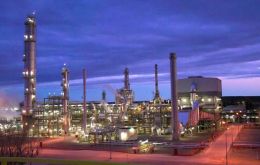
Argentina halted fuel exports and called for a pump price rollback on Monday amid reports of fuel shortages, government news agency Telam reported, citing unidentified government sources.
-
Monday, January 7th 2008 - 20:00 UTC
Chile/Argentina tax dispute delays gold mine development
Construction of the 2.4 billion US dollars Pascua Lama gold mine has been delayed at least one year due to a tax dispute between Chile and Argentina. The Pascua Lama mine straddles the Chile-Argentine border
-
Monday, January 7th 2008 - 20:00 UTC
Argentine former minister charged with cover up
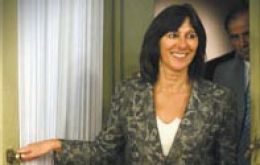
Argentina's former economy minister was charged Monday with trying to cover up the discovery of a bagful of cash she stashed in her office bathroom. Felisa Miceli now faces prosecution on charges of alleged cover-up and destruction of evidence. She also faces a 200.000 pesos embargo.
-
Thursday, January 3rd 2008 - 20:00 UTC
Argentine expatriates remittances soared eight times in 5 years
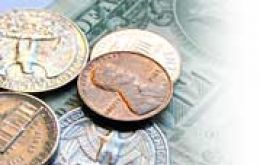
Remittances from Argentine expatriates soared eight times between 2001 and 2006 according to the latest report from the United Nations Economic Commission for Latinamerica and the Caribbean, CEPAL.
-
Thursday, January 3rd 2008 - 20:00 UTC
Plume of ash and gas from Chilean volcano drifting to Argentina
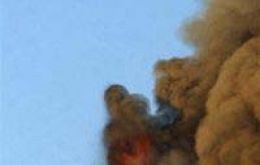
The eruption of Llaima, one of the most active volcanoes in Chile has had an impact in the neighboring province of Neuquén, Argentina, where a yellow alert is on and an emergency plan has been elaborated.
-
Thursday, January 3rd 2008 - 20:00 UTC
Argentina: 2008 hake quota cut 20% to 270.000 tons
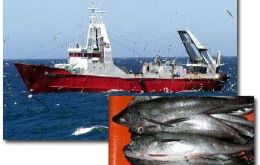
The Argentine Secretariat of Agriculture, Livestock, Fisheries and Food (SAGP&A) authorised a TAC of 270,000 tonnes of hake (Merluccius hubbsi) for this year -- a 20.5 per cent or 70,000 tonne cut compared to the quota fixed for 2007, which amounted to 340,000 tonnes.
-
Thursday, January 3rd 2008 - 20:00 UTC
Argentina recalls 175 years of “illegal” occupation of Malvinas
On the 175 year of the illegal British occupation of the Islas Malvinas the Argentine government ratified its sovereignty claims over the Malvinas, South Georgia, South Sandwich and adjoining maritime spaces.
-
Saturday, December 29th 2007 - 20:00 UTC
Four companies accused of huge oil spill in Patagonia
The government of the province of Chubut, Argentine Patagonia, formally accused before a court of justice several oil corporations for the crude spill which washed along four kilometers of the provincial coast damaging rich marine resources and limiting tourist industry prospects.
-
Saturday, December 29th 2007 - 20:00 UTC
Argentina puts Punta Arenas methanol industry on the cliff
The methanol industry in the extreme south of Chile has announced it will have to appeal to redundancies and an international demand, if Argentina does not resume the supply of natural gas as stipulated in contract clauses, according to company sources.
